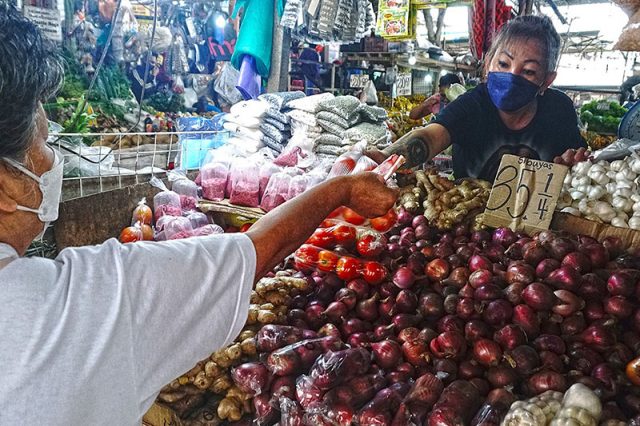
The Philippines’ onion crisis landed a feature story in TIME Magazine.
Titled “In the Philippines, Onions Are Now More Expensive Than Meat. Here’s Why,” the report explored the possible causes of the surge in the price of the basic commodity.
The story was published on its website and on Time’s social media channels on January 9.
“Soaring prices of onions in the Philippines led agriculture authorities to announce this weekend that the country would have to resort to importing around 22,000 tons of the vegetable by March, to augment dwindling domestic supply and arrest rising costs,” part of the feature story reads.
In the Philippines, onions are now more expensive than meat. Here’s why https://t.co/VZnJCfrzD6
— TIME (@TIME) January 9, 2023
This report soon caught the attention of Filipino readers who are bearing the brunt of the onion price surge.
So far, the tweet garnered 4,597 retweets, 2,748 quote retweets and 18,000 likes.
RELATED: ‘Most expensive globally’: Filipinos cry over onion price at P300 per kilo |Juxtaposed: Onion, garlic prices in Philippines vs Thailand |‘Walang guisado?’: Garlic, onion shortage make Filipinos cry
At the time of publication, red and white onions soared to P600 or $10.88 per kilogram, citing data from the government’s price monitor.
This cost was compared to the worth of meat in local markets and the minimum daily wage of Filipino workers.
“That’s about three times as expensive as chicken and 25%-50% more expensive than pork or beef, according to the same market monitoring estimates. The cost of a kilogram of onions is greater than the minimum wage for a day’s work in the Philippines,” the report said.
Several Filipinos were embarrassed the country’s onion crisis got featured in an international publication.
“What a way to stay relevant,” a Twitter user said.
“We made it to the time magazine but at what cost,” another tweeted.
“This is so humiliating oh my god,” another user commented.
Others noticed that the article emphasized the higher value of onions than Filipino workers’ minimum wage.
“An insane yet hauntingly real sentence: ‘The cost of a kilogram of onions is greater than the minimum wage for a day’s work in the Philippines,’” a Twitter user said.
“When onions are priced higher than the minimum wage paid per day, you just know that someone failed… and that isn’t the public,” another tweeted.
The daily minimum wage rates in Metro Manila, according to the National Wages and Productivity Commission, are as follows:
- P570 for the non-agriculture
- P533 for the agriculture and the manufacturing sector that employs less than 10 workers
The last update of these rates was on June 4, 2022.
In comparison, as of January 13, the Department of Agriculture monitored local red onions to be P350 to P550 per kilo.
Early this week, the cost of onions reaches P600 per kilo.
READ: ‘Sisig without onions?’: Pinoys scratch heads as their meal orders become onion-less
So far, one of the highest recorded prices of onions was last December. It soared up to P720 per kilo.









